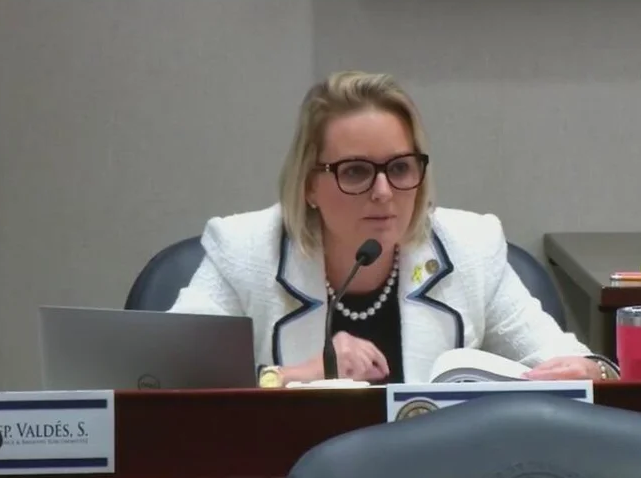The Florida Third District Court of Appeal recently found that when a policyholder failed to substantially comply with a post-loss obligation, the insurance company is presumed to have been prejudiced by the breach.1 The burden then shifts to the policyholder to show that the failure to comply with a post-loss obligation did not prejudice the insurance company. The question remains: What have courts found to satisfy a policyholder’s burden of showing that reporting a claim late did not prejudice the insurance company?
In the 2009 federal case, Keenan Hopkins Schmidt & Stonewell Contractors, Inc. v. Continental Casualty Company,2 the insurance company alleged that the insured breached the policy by providing notice of the underlying claim four years after the loss. However, after receiving notice of the loss, Continental investigated the claim for ten months and denied coverage. Continental’s denial of the claim was “premised not upon the late notice or any resulting detrimental effect on its ability to investigate the claim, but upon Continental’s interpretation and application of the terms of the contract itself.”3 The court found that because Continental was able to investigate the claim sufficiently to permit it to deny the claim on grounds other than reporting the claim late, Continental’s denial of the claim “effectively rebuts any presumption of prejudice arising from the late notice.”4
In De La Rosa v. Florida Peninsula Insurance Company,5 Florida Peninsula alleged that the insureds reporting a claim fifteen months following the loss constituted late reporting and barred the insureds from recovering under the policy. The court found that although “there may be disputed issues of fact as to whether the insurer was prejudiced in determining the cause of the incident, the record forecloses the insured’s ability to overcome the prejudice to the insurer in evaluating the extent of the damage because of the delay in making the claim.”6 The court relied on the insureds’ engineer’s report, which stated that the water damage from the insureds’ water backup in the master bathroom,
[W]ould increase with time when the damage was not promptly remedied. Mold, which would occur due to water intrusion, would expand over time if damaged surfaces were not replaced. Further, he noted that water escape from pipes under the slab would over time cause structural instability, the full extent of which could not be determined at this point without opening the slab to evaluate how much damage has occurred.7
The court held the engineer’s affidavit submitted by the insured showed that Florida Peninsula was “prejudiced by the passage of time in investigating the extent of the loss, and thus, the cost of repair.”8 Although the insureds may have been able to show Florida Peninsula was not prejudiced in part, they were not able to show that Florida Peninsula was not prejudiced at all from reporting the claim late.
In Stark v. State Farm Insurance Company,9 the insureds reported damages to their home as a result of Hurricane Wilma over three years after the storm. The trial court granted State Farm’s motion for summary judgment, finding that State Farm was prejudiced from the insureds’ late reporting. The insureds furnished two affidavits to the court, one from their engineer and one from their public adjuster. The engineer stated that “there was ‘a classic pattern of wind damage’ and that “[t]he only possible event that could have caused this type of damage was Hurricane Wilma.”10 The insureds’ public adjuster stated that at an inspection of the property, the insurer’s investigator told him “that there appeared to be storm damage to the [insureds’] roof.”11 The Fourth District Court of Appeal relied upon the insureds’ engineer stating that the passage of time would not interfere with the investigation of the claim and the vicarious admission of State Farm’s adjuster that there appeared to be storm damage to the insured property.12 The court reversed the trial court’s decision finding “that the insureds could convince a finder of fact that their noncompliance with the notice provision did not prejudice the insurer by depriving it “of the opportunity to investigate the facts.”13
As is evident from the cases discussed above, proving that reporting a claim late did not prejudice an insurance company is fact-specific for each claim. The insured must show specific evidence that the insurer was able to complete its investigation despite reporting the claim late.14 Generally, courts look at whether the insurance company was able to investigate the cause and scope of the damages reported. Over time, the cause and scope of the damage can become more difficult to determine. When an insured can show that the passage of time did not obstruct the insurer from fully investigating the claim, the insured can typically satisfy its burden of showing that reporting the claim late did not prejudice the insurance company. Nevertheless, policyholders should promptly report damages to their insurance company and seek guidance if they need help understanding or complying with any post-loss obligation.
____________________________
1 Am. Integrity Ins. Co. v. Estrada, 276 So. 3d 905, 916 (Fla. 3d DCA 2019).
2 Keenan Hopkins Schmidt & Stowell Contractors, Inc. v. Cont’l Cas. Co., 653 F. Supp. 2d 1255(M.D. Fla. 2009).
3 Id. at 1263.
4 Id. at 1262.
5 De La Rosa v. Fla. Peninsula Ins. Co., 246 So. 3d 438 (Fla. 4th DCA 2018).
6 Id. at 441.
7 Id. at 442.
8 Id.
9 Stark v. State Farm Fla. Ins. Co., 95 So. 3d 285 (Fla. 4th DCA 2012).
10 Id. at 287.
11 Id.
12 Id. at 288.
13 Id. (citing Bankers Ins. Co. v. Macias, 475 So.2d 1216, 1218 (Fla.1985)).
14 In Hope v. Citizens Prop. Ins. Corp., 114 So. 3d 457 (Fla. 3rd DCA 2013) and 1500 Coral Towers Condo. Ass’n, Inc. v. Citizens Prop. Ins. Corp., 112 So. 3d 541, 542 (Fla. 3rd DCA 2013), the courts held that the submissions of estimates and conclusory statements that the insurer was not prejudice do not overcome the presumption of prejudice.



